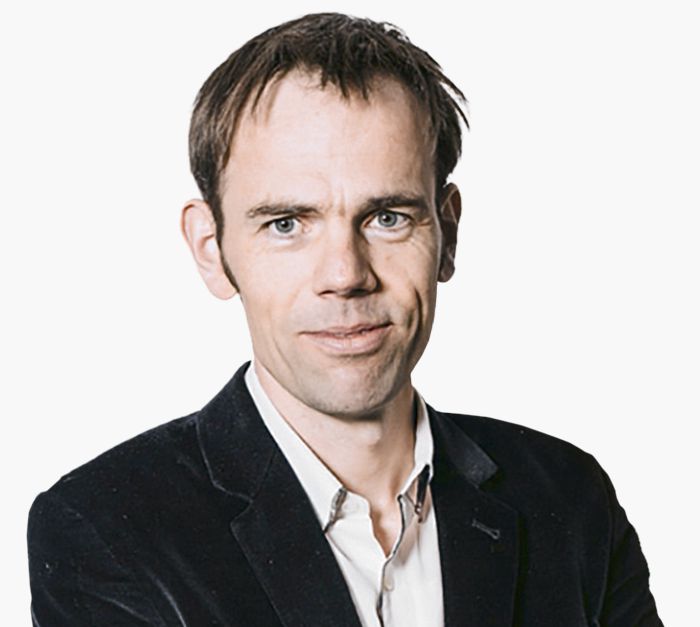The conflict between the US and China has escalated, and Taiwan is at risk. A dynamic arises where both powers point the finger at each other, a story about who started the expansion. “You’re conducting military exercises!” “Yes, but you are closing us in with new alliances!” You can almost forget about it too Inside Taiwan is negotiating its own destiny.
This month, Taiwanese President Tsai Ing-wen made two short trips to the United States. The leader of Taiwan’s center-left party, the DPP, wants to arm the country firmly with US support. In a speech in New York, he said: “Taiwan is at the forefront of democracy.” A week later, he met with congressional representatives in California, including Republican Speaker Kevin McCarthy. This is the first time on American soil. Last summer he hosted McCarthy’s Democratic predecessor, Nancy Pelosi, in Taipei, leading to serious diplomatic tensions.
It is noteworthy that Tsai’s predecessor, former President Ma Ying-jeou, made a trip through China around the same time. A novelty too. The former leader of the right-wing Kuomintang Party (KMT) held talks in Beijing and visited Sun Yat-sen’s tomb in Nanjing. This revolutionary and reformer overthrew the last emperor of China in 1911 and was the founder of the Republic of China, of which Taiwan is a sort of successor. After all, after losing the civil war against Mao’s Communists in 1949, the KMT nationalists took refuge in Taiwan and continued as the ‘Republic of China’ (as the country is still officially called), while the mainland victors became the ‘People’s Republic’. China,” Xi is leading today. By paying homage to the sun, the former Taiwanese president seeks to connect with shared history. “We are Chinese on both sides of the Taiwan Strait.” he said.
In nearly 75 years, Taiwan has developed its own democratic identity. For Xi and the party, however, it remains a treacherous province that will be brought in by force if necessary. Following a Beijing-ordered crackdown on Hong Kong protests in 2019, Taiwanese distrust of the mainland has grown. In 2020, Tsai won re-election.
Many Taiwanese still hope for a peaceful way out, or at least a postponement of war. According to Poll by Academia Sinica Since Taipei, the country is split on whether to strengthen ties with the US (39 percent yes, 42 percent no). Only 33 percent of Taiwanese view the United States as trustworthy, while 56 percent doubt it. The next presidential election will be held in early 2024.
In his New York speech, Tsai compared his country to Ukraine: just as Ukrainians are divided about their desired relationship with Russia before 2022, Taiwanese are talking about China today. But can Taiwan still determine itself in the superpower movement?
The EU also threatens to be absorbed into the US-China conflict as a near-plaything. These days, no thanks for recalling French President Macron. He said in an interview on his way back from a three-day state visit to China – shortly before his trip to the Netherlands. Les Echos And Politics Europe is not ‘aligned’ with Taiwan (Selfish) should not be dragged or pulled into “crises that are not ours”. In other words: it is important to determine our own interests before following America.
Review everywhere. At a time when Europe is dependent on the United States to defend Ukraine against Russia, the desire for its own course has fallen badly short. In Germany And Republic of Che. It is also less credible to speak on behalf of Europe when you have visited Beijing with a sizable French business delegation.
In the American Internationally Read Edition PoliticsOffered a mix of quotes and explanations, lacked the nuance of dialogue Les Echos Printed in more detail. This is not the first time Macron has experienced this. Clumsy, because discussion of interests, values, and Taiwan dilemmas deserves more than scolding and ridicule.
Ask Macron: “Is Joe Biden a decent Donald Trump?” Answer: ‘He is attached to democracy, fundamental principles, international cooperation, he knows and loves Europe. Counts that. At the same time, he is part of a cross-party American logic that puts American interests at No. 1 and China at No. 2. The rest are less important. Is it necessary to criticize? No. But we have to take it into account.
Luke the Mediator A political philosopher and historian.
A version of this article appeared in the April 12, 2023 issue of the newspaper.







